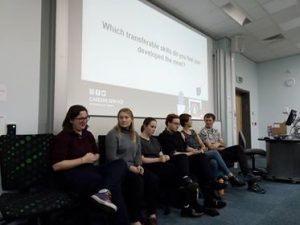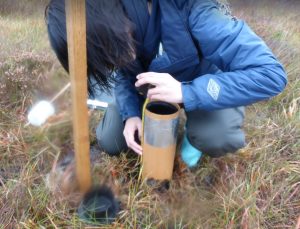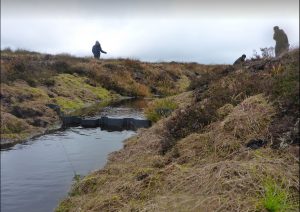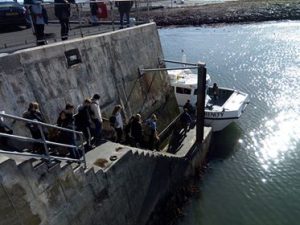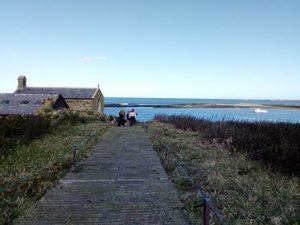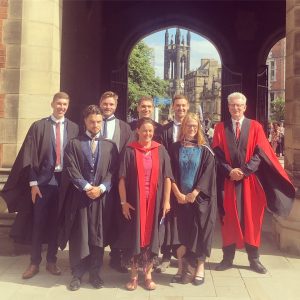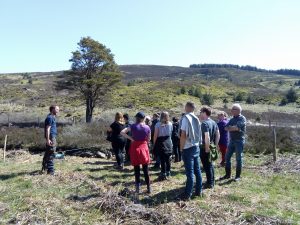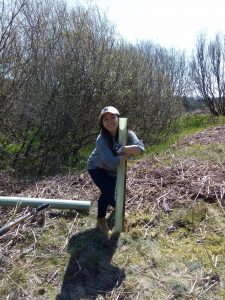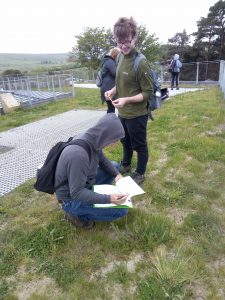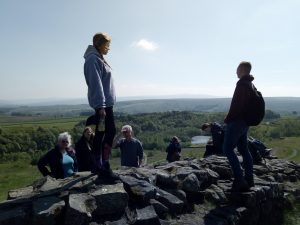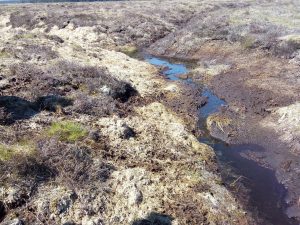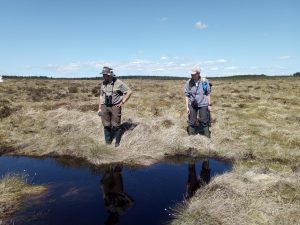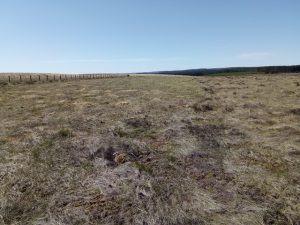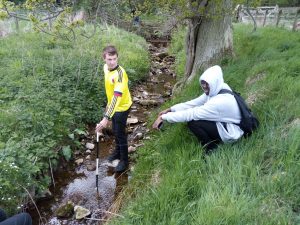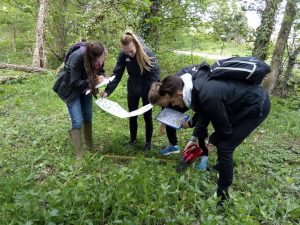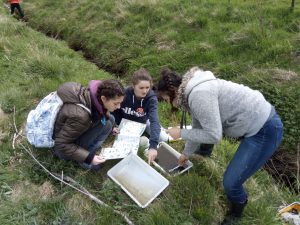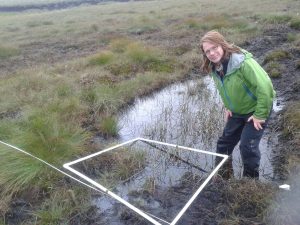It is great to have joint events within our fairly recently formed School of Natural and Environmental Sciences. Students who have returned from placements in places ranging from Italy to Taunton reported on their experiences: caring for snakes, developing food and toiletries that are about to be released onto the market, and running investigative projects that will change how companies work.
Seventy 2nd year students from Chemistry, Biology, Agriculture, Food Marketing and Environmental Science attended in our joint event, brilliantly run by NU Careers Service. I just had to sit back and enjoy the stories from our returning students and feel the excitement and anticipation of our 2nd years as they will start to apply for year long placements.